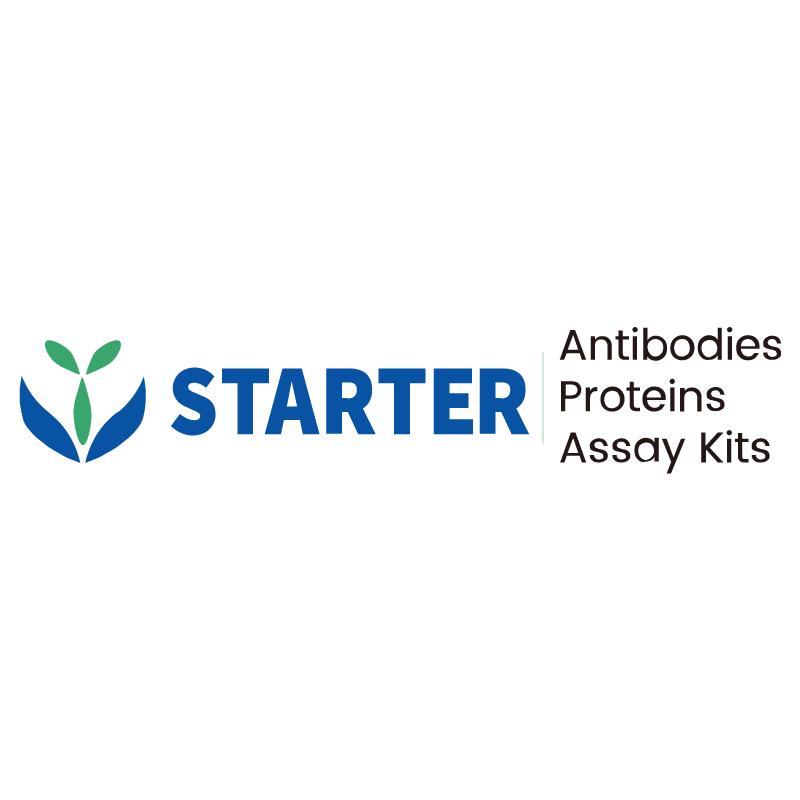Flow cytometric analysis of Raji (Human Burkitt's lymphoma B lymphocyte, Left) / MOLT-4 (Human lymphoblastic leukemia T lymphoblast, Right) labelling CD199 antibody at 1/200 dilution (1 μg) / (Red) compared with a Mouse IgG2a, κ Isotype control (Black) and an unlabelled control (cells without incubation with primary antibody and secondary antibody) (Blue). Goat Anti - Mouse IgG Alexa Fluor® 488 was used as the secondary antibody.
Negative control: Raji
Product Details
Product Details
Product Specification
| Host | Mouse |
| Antigen | CD199 |
| Synonyms | C-C chemokine receptor type 9; C-C CKR-9; CC-CKR-9; CCR-9; G-protein coupled receptor 28; GPR-9-6; CDw199; GPR28; CCR9 |
| Location | Cell membrane |
| Accession | P51686 |
| Clone Number | S-3012 |
| Antibody Type | Mouse mAb |
| Isotype | IgG2a,k |
| Application | FCM |
| Reactivity | Hu |
| Positive Sample | MOLT-4 |
| Purification | Protein A |
| Concentration | 2 mg/ml |
| Conjugation | Unconjugated |
| Physical Appearance | Liquid |
| Storage Buffer | PBS pH7.4 |
| Stability & Storage | 12 months from date of receipt / reconstitution, 2 to 8 °C as supplied |
Dilution
| application | dilution | species |
| FCM | 1:200 | Hu |
Background
CD199 (also designated CCR9) is a ~42 kDa seven-transmembrane G-protein-coupled chemokine receptor that binds the chemokine CCL25 (TECK), is strongly expressed in thymic cortex and small intestinal epithelium, and is highly expressed on CD4+CD8+ double-positive thymocytes and naive CD8+ T cells, as well as on small intestinal B cells, subsets of memory CD4+/CD8+ T cells, and dendritic cells, thereby directing T-cell development in the thymus and lymphocyte homing to gut-associated tissues via the CCR9/CCL25 axis, with dysregulation implicated in inflammatory bowel disease and celiac disease .
Picture
Picture
FC


